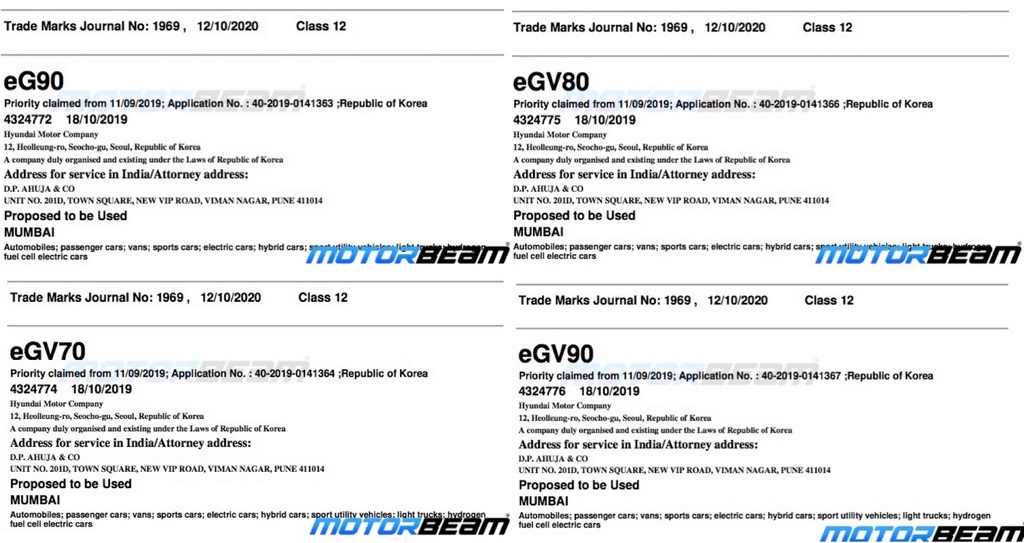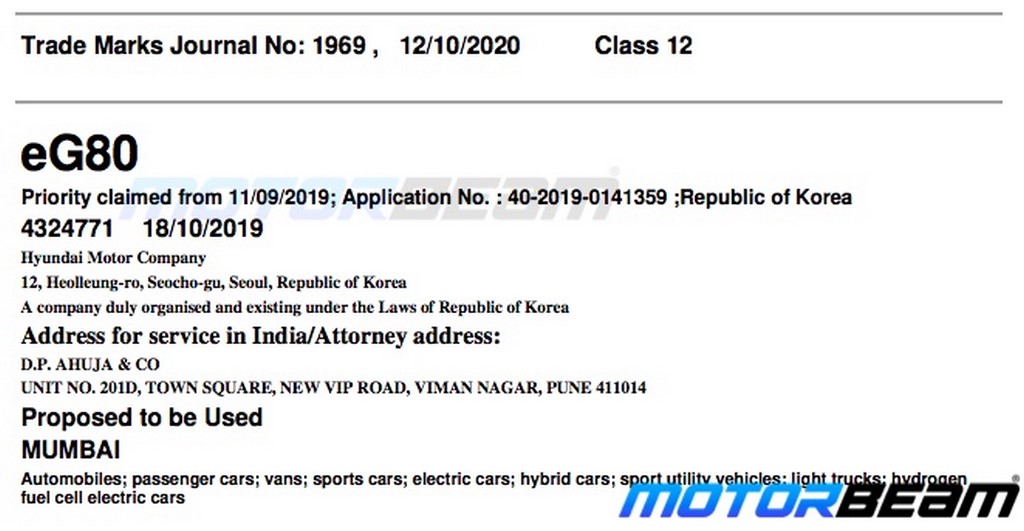Genesis Trademarks Electric Cars In India, Launch Planned?
It is possible that the Korean luxury car brand might enter India with its latest electric vehicles.

Trademarks for as many as five Genesis electric cars have been applied by Hyundai Motor Company in India.
The models are eG80, eG90, eGV70, eGV80 and eGV90. By Genesis’ own nomenclature, we can be rest assured that the first two are electric sedans/saloons and the last three are electric SUVs.
It is no secret that Hyundai has been wanting to launch its Genesis luxury brand in India for sometime now. We had even reported on it back in 2019 and it can be read here.
Admittedly, the firm is expected to set foot in India with the launch of its SUVs the GV70 (latest version of which is yet to be introduced) and GV80, which are based on the Hyundai Tucson and Palisade, respectively.
Further, Genesis also has three sedans, namely the G70, G80 and G90, and at least one of them are expected to make it to our shores.
Having launched the Kona Electric, Hyundai has an idea as to where the current electric market in India stands. So, we can expect Genesis’ IC-engined models to get launched in India first, after which, the EVs will follow suit. But, the luxury brand might enter India with only its new electric models.
Currently, Genesis is developing an array of electric vehicles including the eG80 and an JW electric crossover that is based on E-GMP (Electric-Global Modular Platform), which will also be used by the Ioniq EV brand and also by Kia. Other models will be developed soon after.
If Hyundai manages to bring Genesis cars to India at the right time and at the right price point, then it might get a good response from customers.
With regards to the electric vehicles and importantly electric SUVs that might come to India, as can be seen in the Genesis electric cars trademark, the South Korean brand might not want to wait too much.
That is because Mercedes-Benz recently launched the EQC, while Jaguar and Audi are expected to pit their own electric SUVs against Mercedes so as to not lose out on the first-mover advantage.

